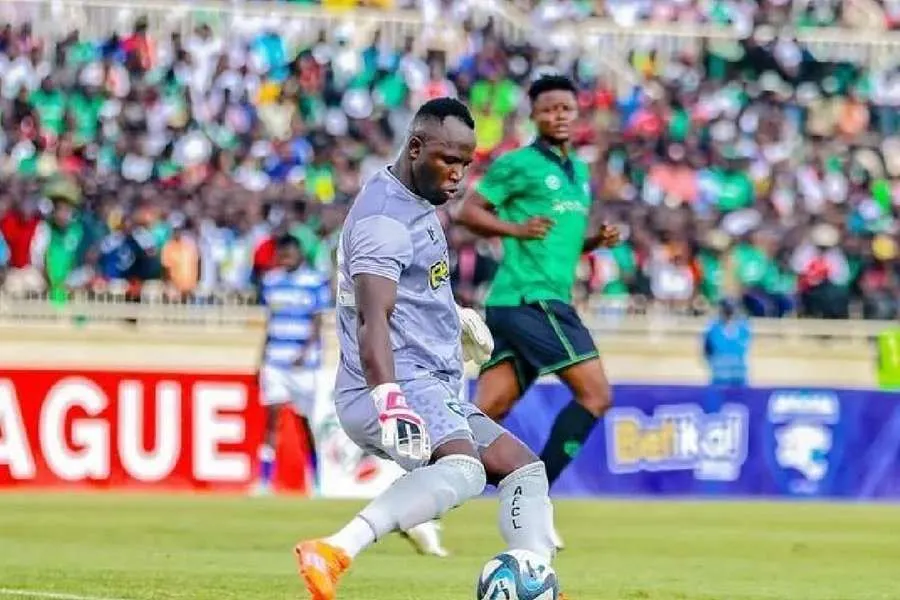The 2025 Mashemeji Derby, a battle steeped in history and passion between AFC Leopards and Gor Mahia, unfolded with all the drama expected from one of Kenyan football’s most eagerly anticipated fixtures. Held under the floodlights at the iconic Nyayo National Stadium, this 96th installment left hearts racing and emotions riding high, even as both sides settled for a goalless draw. Beyond the scoreline, it was a day packed with stories of dedication, community, and the undeniable love for the beautiful game.
An electrifying atmosphere
Thousands of fans thronged Nyayo Stadium, their passion creating an atmosphere akin to a carnival. From early afternoon, supporters draped in their team’s colors flooded the grounds, generating an electrifying buzz. Whether through the blaring sounds of vuvuzelas or joyous chants echoing across the stands, the heartbeat of Kenyan football was palpable. Such fervor translated into significant revenue, with AFC Leopards reportedly generating a staggering KSh 7.3 million from ticket sales, underscoring the financial muscle potential of local sports when properly harnessed.
Issues of crowd management
Despite this financial windfall, the Derby was marred by logistical challenges. Reports surfaced of inadequate gate management and ticket verification issues, leaving some fans frustrated. Social media buzzed with reactions from game-goers highlighting the overcrowded stadium. These chaotic scenes underscored a need for improved event management, especially with major competitions like the upcoming African Nations Championship (CHAN) looming on the horizon.
A tactical stalemate
On the pitch, both teams showed glimpses of quality, but tactical decisions drew criticisms. Gor Mahia was without their returning star, Benson Omala, whose presence might have shifted the game’s dynamic. Coach Sinisa Mihic’s decision-making came under fire, especially after deploying a defensive formation that many believed stifled their attacking opportunities. Fans and analysts alike decried the lack of penetration, as both teams struggled to convert possession into tangible goal opportunities.
| CASINO | BONUS | INFO | RATING | |
|---|---|---|---|---|
|
bonus
Refer friends, win cash prizes!
|
info
BK 0000672 PG 0000412 Mobile-friendly |
|||
|
bonus
Claim 1 free spin for signing up, win up to KSH 1,000!
See 3 Bonuses
|
info
PG 0000422 Games from top providers, rewarding welcome bonus & VIP program |
|||
|
bonus
Refer a friend and claim KSH 250
See 4 Bonuses
|
info
BK 0000739 PG 0000468 BCLB license, registration bonus, variety of casino games |
|||
|
bonus
New players get 50 free spins and a Ksh 2500 freebet!
See 7 Bonuses
|
info
BK 0000665 PG 0000405 Good combination of online casino and betting platform |
Key player performances
Amidst the tactical chess match was the standout performance of AFC Leopards’ captain, Lewis Bandi. His leadership on the backline was exemplary, earning him praise and solidifying his candidature for national duties with the Harambee Stars. Bandi’s resilience and his story of recovery from a significant ACL injury only added to the narrative of triumph amidst adversity that the Derby seemed to epitomize.
Financial insights and community dynamics
The Derby also shone a spotlight on the financial narratives surrounding both clubs. AFC Leopards’ chairman, Dan Shikanda, opened up about the club’s monetary struggles. Unlike Gor Mahia, which enjoys robust community backing, AFC Leopards had to navigate financial challenges independently. This gap in community support reflected on the field, affecting team morale and performance consistency.
The legacy of the Derby
Fred Ambani, coaching his first Mashemeji Derby, maintained his unbeaten record against Gor Mahia, a testament to his tactical acumen. Yet, even he expressed a tinge of regret at not securing a victory. His personal journey—transitioning from a player who never lost a Derby to a coach maintaining that legacy—added another layer of intrigue to the narrative. The impassioned reactions from both sets of fans, oscillating between pride and frustration, encapsulated what the Mashemeji Derby represents: a microcosm of hopes, dreams, and relentless rivalry.
Looking forward
As the dust settles on this year’s fixture, the challenges and triumphs experienced highlight the broader scope of Kenyan football and its resources. The Mashemeji Derby, entrenched deeply as a cultural phenomenon, reinforces the enduring legacy of sports as a bridge between communities and a platform for showcasing raw talent. With hopes for better management and infrastructure, the future of such historic rivalries promises not just passionate football but also a well-oiled sporting spectacle, worthy of its grand tradition.









